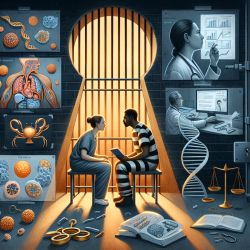Unlocking the Power of Cognitive Apprenticeship in Psychotherapy Training
The Cognitive Apprenticeship Model (CAM) is transforming the landscape of psychotherapy training and supervision. This innovative approach integrates traditional apprenticeship methods with cognitive learning strategies to enhance the skills of therapists, ensuring better outcomes for clients. For practitioners, understanding and implementing the CAM can be a game-changer in their professional development.
What is the Cognitive Apprenticeship Model?
CAM combines hands-on practice with cognitive processes, such as reasoning and problem-solving, to teach complex skills. It emphasizes the following four dimensions:
- Acquisition of Psychotherapy Content Knowledge: This involves learning the domain-specific knowledge required to become a competent psychotherapist, including various theories, strategies, and interventions.
- Application of the Cognitive Apprenticeship Model of Supervision: Utilizing modeling, coaching, scaffolding, articulation, reflection, and exploration to structure a live, real-time supervisory experience.
- Sequencing of Clinical Psychotherapy Training Activities: Organizing learning activities from general to specialized skills to optimize training effectiveness.
- Use of Situated Learning and Communities of Practice: Creating a learning environment that mirrors real-world settings and encourages collaboration among trainees.
Enhancing Skills Through CAM
For practitioners, CAM offers a structured yet flexible approach to skill development. Here’s how you can leverage this model to improve your practice:
- Engage in Reflective Practice: Regularly reflect on your therapeutic approaches, assess new learning needs, and enhance self-awareness through written or verbal reflections.
- Participate in Communities of Practice: Collaborate with peers to share insights, solve problems, and develop professional norms. This community engagement fosters a deeper understanding of psychotherapy practices.
- Embrace Real-Time Supervision: Seek live supervision opportunities where you can receive immediate feedback and coaching. This hands-on experience is invaluable for honing your therapeutic skills.
- Experiment with Different Approaches: As you advance, explore various theories and techniques to develop a personalized therapeutic style. This exploration enhances creativity and adaptability in therapy sessions.
Overcoming Barriers to Implementation
Implementing CAM can present challenges, but with strategic planning, these can be overcome:
- Theoretical Objections: Some may resist the model due to concerns about transference and countertransference. However, CAM has shown that these dynamics can be effectively managed within the model.
- Availability of Supervisors: Engaging community providers and utilizing virtual platforms can expand access to supervision and training resources.
- Time and Resources: While initial setup may require more time, CAM ultimately streamlines supervision processes, making it a time-efficient model.
Conclusion
The Cognitive Apprenticeship Model offers a robust framework for enhancing psychotherapy training and supervision. By integrating cognitive processes with practical experience, CAM prepares practitioners to deliver high-quality therapy and achieve positive client outcomes. For those interested in further exploring this model, the original research paper provides detailed insights and practical reflections.
To read the original research paper, please follow this link: Descriptions and Reflections on the Cognitive Apprenticeship Model of Psychotherapy Training & Supervision.










